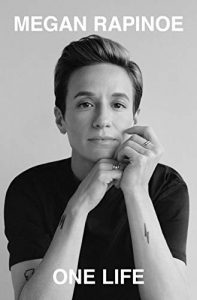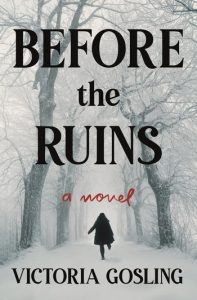
Lit Hub's Most Anticipated Books
of 2020, Part 2
A Reading List for Our Cursed Timeline
NOVEMBER
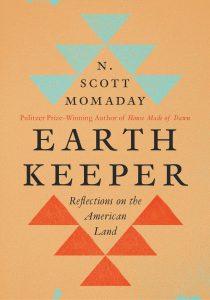
N. Scott Momaday, Earth Keeper: Reflections on American Land
Harper, November 3
N Scott Momaday—the Kiowa novelist, short story writer, essayist, and poet whose novel House Made of Dawn won the Pulitzer Prize back in 1969 and is considered the first major work of the Native American Renaissance—has devoted the majority of his life to preserving and promoting Native American stories. Now in his 87th year, Momaday’s latest work is both a poetic tribute to the sacred land of his native Southwest, and a warning to us all: protect the natural world before it is too late. –Dan Sheehan, Book Marks Editor

Yi Lei, tr. Tracy K. Smith, My Name Will Grow Wide Like a Tree
Graywolf, November 3
Yi Lei was one of the most revolutionary poets of contemporary China when she died two years ago. This rich selection of her poems, lucidly rendered into English by Pulitzer Prize-winning poet Tracy K Smith, with Chantai Bi, ought to make that a better known fact in the English-speaking world. Drawing from poems written over the last four decades, My Name Will Grow Wide Like a Tree features work of stunning beauty and precision, poems in which lines repeat to glorious effect, as in “Huangguoshu Waterfall, wherein the poem becomes like a cataract itself. “Great stones of whitewater / hammer down,” goes its open line, descriptively; “Great stone of whitewater / hammer down,” it repeats then, this time, with a new clause to follow, imploringly. When the line appears a final time, it’s a demand.
It’s an unusual poem of Yi Lei’s, many of which do not run over a stanza, let alone from one line to the next line. Instead, they move forward in brief, astonishingly clear syntactical notes. Periods abound. The steady music of this mode has its benefits. So when in “Between Strangers” has a line which unfolds, “History tells me to guard my distance,” we hold our breath, waiting for what follows—only to be heartbroken by what comes: “When I pass you on the street, and I obey.” How better to define poetry: when a revelation can be delivered in ten words or less. –John Freeman, Lit Hub Executive Editor
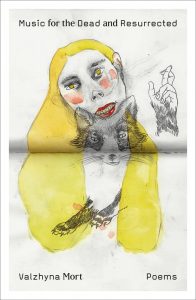
Valzhyna Mort, Music for the Dead and Resurrected
FSG, November 3
This book is no dead letter office, but rather, a phantasmagorical post office in which the departed can be addressed. Who better than Mort to do it. If there’s a poet who can pour lightning into your heart with greater precision, they’re doing a good job of hiding. Talking to ancestors, dead poets, even lovers, Mort culls a register of address often left dormant when we think the world is made of merely of the living. –John Freeman, Executive Editor

Nicole Krauss, To Be a Man: Stories
Harper, November 3
To be a fan of Nicole Krauss is to want to unspool the things that are difficult and surprising about human relationships. If you liked The History of Love or Great House, you know that her stories often start with a certain kind of serendipity, that stringing together separate lives is her specialty, that through her touch, objects tend to take on a magical quality. Her new short story collection occupies a similar space. A young woman enchants her friends with stories of her sexual conquests. A man who came back from the dead stands on the roof with his newborn grandson. A woman whose father is recently deceased discovers a stranger staying in his old Tel Aviv apartment. These are characters who mourn (dead fathers, past lovers, other selves) in unique ways, but you’ll find comfort in their relatability. –Katie Yee, Book Marks Associate Editor
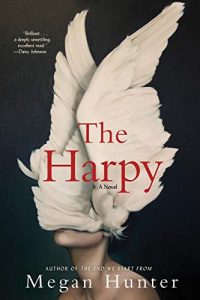
Megan Hunter, The Harpy
Grove, November 3
After Lucy discovers her husband has been sleeping with a colleague, they come to an agreement: she may hurt him three times. But make no mistake: The Harpy is not like any other story of an affair. We do not get a love story. We don’t know a lot about their marriage. We don’t even get a particularly full portrait of the family (with two young kids!) that’s being torn apart. This is the brilliance of Megan Hunter’s novel. In a book that begins with a wife discovering her husband’s infidelity, you might, at some point, expect a tug-on-your-heartstrings attempt at redemption: a torn man, wrestling with morals, a good father, true love. None of this matters in The Harpy! What we find here instead is a fascinating descent into a woman scorned. What happens when two people in a relationship no longer come to the table with the best intentions? Megan Hunter is a beautiful observer of the minutiae in a soured marriage; she has this way of picking up these little details, these tiny scraps, and wielding them in a way that pierces. Toggling between their dark present and the narrator’s lifelong fascination with the mythical figure of the harpy, the novel has a sinister, fairy-tale like quality. In this space, Megan Hunter has carved out a place for a woman between Virgin and Whore, a third kind of woman that claws at your insides long after you’ve shut the book. –Katie Yee, Book Marks Associate Editor
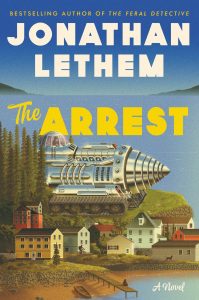
Jonathan Lethem, The Arrest
Ecco, November 10
From Gun, With Occasional Music to Motherless Brooklyn, The Fortress of Solitude to A Gambler’s Anatomy, I’ve never met a Lethem novel I didn’t like. They’re always full of heart and humor, wildly inventive and endearingly melancholy. The latest work from the genre-bending Brooklynite is billed as a “post-apocalyptic yarn about two siblings, the man that came between them, and a nuclear-powered super car.” Count me very much in. –Dan Sheehan, Book Marks Editor
Megan Rapinoe, One Life
Penguin Books, November 10
I don’t usually go in for celebrity memoirs, of any kind. But as lifelong soccer player and human in desperate need to remember that there are some good things and people in the world, I have to admit I’m looking forward to Megan Rapinoe’s, which promises to be not just the story of her life but a call to action from an influential and tireless activist. If more little girls grew up like her, we’d be better off indeed. –Emily Temple, Managing Editor

Margaret Atwood, Dearly: Poems
Ecco, November 10
Margaret Atwood began her writing life as a poet in 1961, hand-printing her debut collection Double Persephone on a flat-be d press, drawing the linoblock illustrations herself. Ever since she made the forms she’s—the romance, the tragedy, the myth, the essay—her own with a similar hands-on approach. The making is always mostly felt in her poems though, which expertly use sonic effects to disquiet the reader. These new poems, written over the past decade, sharpen that mode ever more, rewriting stories (the werewolf) and narratives (our earth will be here forever us) to show how dearly we need to wake up. –John Freeman, Executive Editor
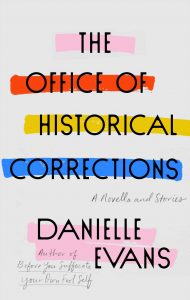
Danielle Evans, The Office of Historical Corrections: A Novella and Stories
Riverhead, November 10
Danielle Evans previously drew praise for her short story collection Before You Suffocate Your Own Fool Self; now, she’s back with more stories that explore issues of race and power in America through her characters’ lives. With her sharp writing and a nuanced portrayal of human relationships, she has created an engrossing collection. –Corinne Segal, Senior Editor
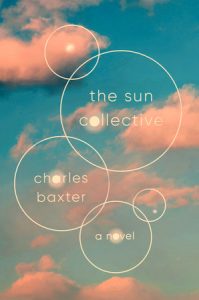
Charles Baxter, The Sun Collective
Pantheon, November 17
Charles Baxter’s Gryphon is one of my all-time favorite short story collections, and I included a reading from his novel The Feast of Love in my wedding ceremony, so I would describe my interest in his work as robust. In The Sun Collective, a family searching for their missing son is drawn to a local activist group with a charismatic leader. Baxter a master of quiet moments of unfathomably deep humanity, whether he’s describing falling in love or the loss of a child. I can’t wait to see what he does with this one. –Jessie Gaynor, Lit Hub Social Media Editor
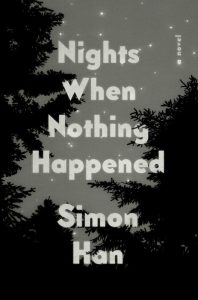
Simon Han, Nights When Nothing Happened
Riverhead, November 17
In this debut novel, an immigrant family living in suburban Dallas thinks they might have just achieved the American Dream—such as it is. But when they reunite with the child who stayed behind in China, she begins to sleepwalk, with unexpected consequences. “Han weaves the transience of suburbia between the highs and lows of a family saga,” Bryan Washington wrote, “illustrating what a parent owes a child, what a child owes their parents, and what simply cannot be repaid. His novel shocks, awes, and delights.” I’m very much looking forward to all that. –Emily Temple, Managing Editor
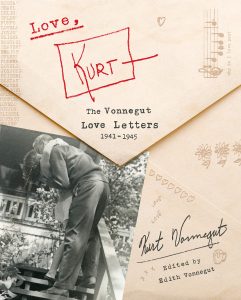
Edith Vonnegut, ed., Love, Kurt: The Vonnegut Love Letters, 1941-1945
Random House, November 17
I came to the novels of Kurt Vonnegut in my late twenties, much later than most of my peers (in this business, anyway) and was deeply struck by their tenderness. Even as Vonnegut grapples with war, hypocrisy, greed, and all the worst things we do to each other, he somehow hangs on to a fine thread of hopefulness, locates that little private joke we tell ourselves as the lights go out and reminds us it’s ok to smile. Between 1941 and 45, the very young Vonnegut wrote over 200 letters to his soon-to-be wife Edith: notes, sketches, comics, jokes, sweet-nothings… the inner voice of a young man in love spilled onto the page, finding its way toward the writer he’d one day become. –Jonny Diamond, Lit Hub Editor-in-Chief
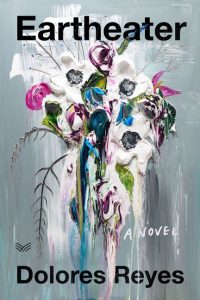
Dolores Reyes, tr. Julia Sanches, Eartheater
HarperVia, November 17
In which a young woman feels the urge to eat the earth, and when she does, she finds she has visions of the dead—visions that can reveal the truth of what happened to them. I love a good high-concept fabulist novel, especially when it’s feminist, so I’m all over this one. –Emily Temple, Managing Editor
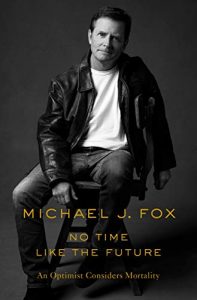
Michael J. Fox, No Time Like the Future
Flatiron, November 17
If you can find no joy in the Back to the Future trilogy (which, lest we forget, created, in Biff Tannen, a grotesque Trumpian villain long before it was cool) then I weep for you. Similarly, if you don’t find Fox’s decades-long Parkinson’s advocacy inspiring, then you may well be a heartless husk of a human being who does not deserve to read these “personal stories and observations about illness and health, aging, the strength of family and friends, and how our perceptions about time affect the way we approach mortality.” The man who played Teen Wolf is a national treasure and this right here is his book of secrets. Oh, and he was also great in Spin City and that one Scrubs episode. –Dan Sheehan, Book Marks Editor
Victoria Gosling, Before the Ruins
Henry Holt, November 17
Sarah Waters calls Gosling’s debut literary thriller “engrossing, beguiling, and with an undertow of menace,” which makes me want to read it no matter what it’s about—but the fact that it concerns an abandoned manor house and a treasure hunt does not hurt at all. –Emily Temple, Managing Editor

Ernest Cline, Ready Player Two
Ballantine, November 24
As recently reported in this space, Cline’s follow-up to his 2011 #1 bestseller Ready Player One is finally hitting shelves this November. It’s back to the Oasis for us. –Emily Temple, Managing Editor
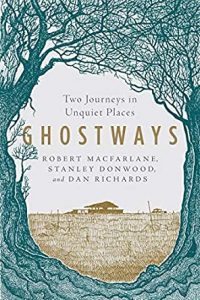
Robert Macfarlane and Dan Richards, Ghostways: Two Journeys in Unquiet Places
Norton, November 24
Robert Macfarlane’s Underland was an extraordinary accomplishment of nature writing and one of my favorite books; now, he, alongside Dan Richards and Stanely Donwood, turns an eye to South Dorset in southwestern England and Orford Ness, a former atomic testing site in southeast England, exploring the many myths of the landscape. –Corinne Segal, Senior Editor
Emily Temple
Emily Temple is the managing editor at Lit Hub. Her first novel, The Lightness, was published by William Morrow/HarperCollins in June 2020. You can buy it here.









